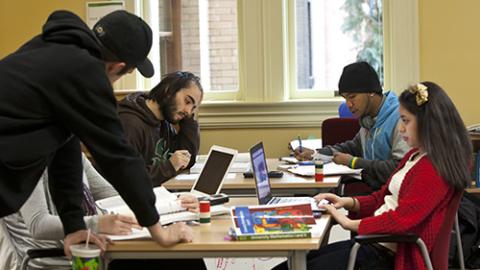
Math Homework Help
When the Mathematics Library is open we offer drop-in homework help for lower-level math classes. We can help with all of the 100-level math classes, the calculus sequences, and STATS 243. Some of our student employees can help with additional 200 and 300 level classes.
Where else can I get math help on campus?
See the library's tutoring page.
How do I apply to work as a Math Homework Helper?
We accept online applications through Handshake when we are hiring.
Questions?
If you have questions about the Math Homework Help service or employment, please contact the Math Librarian, Kristin Buxton, at kbuxton@uoregon.edu.
